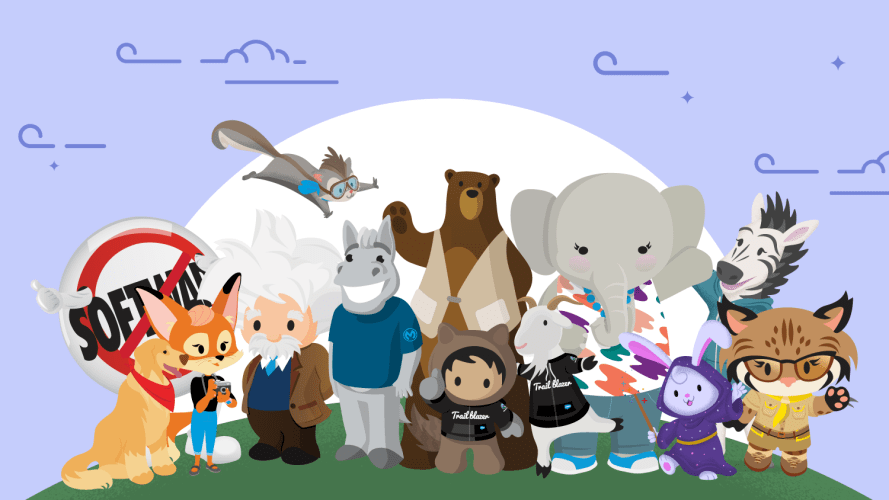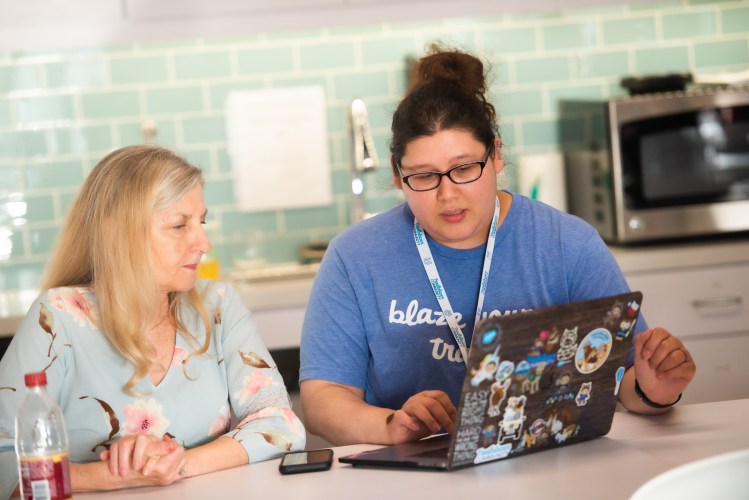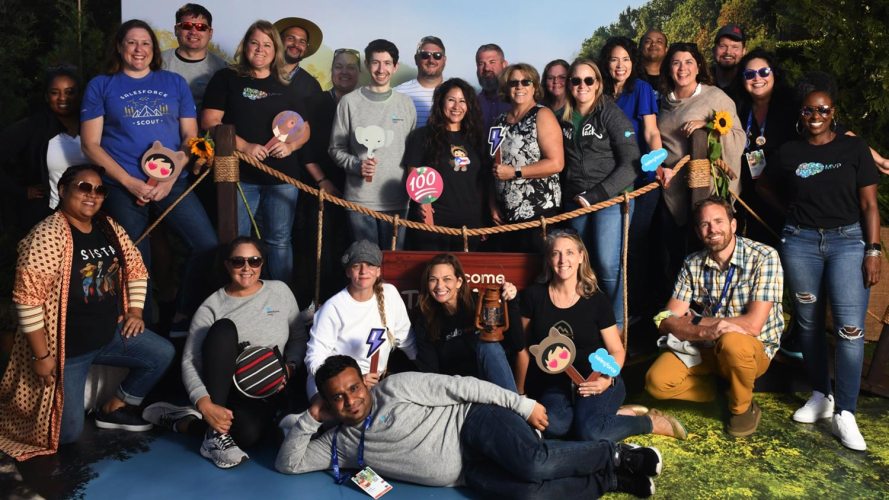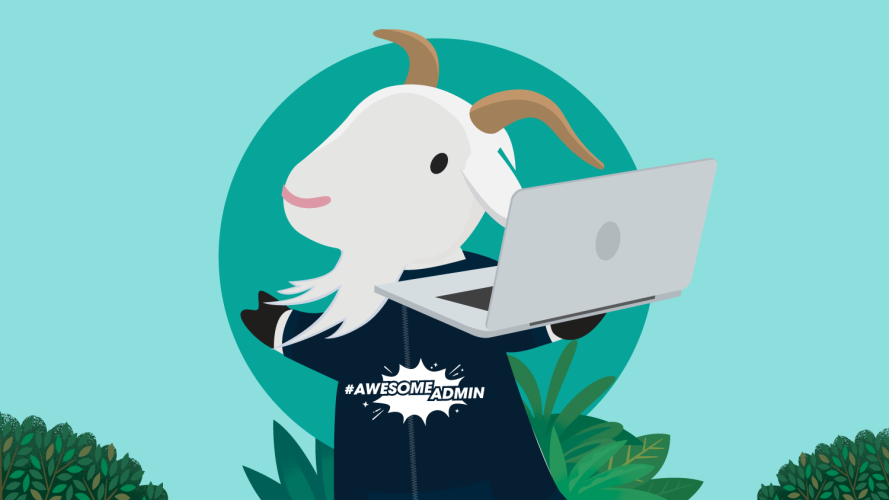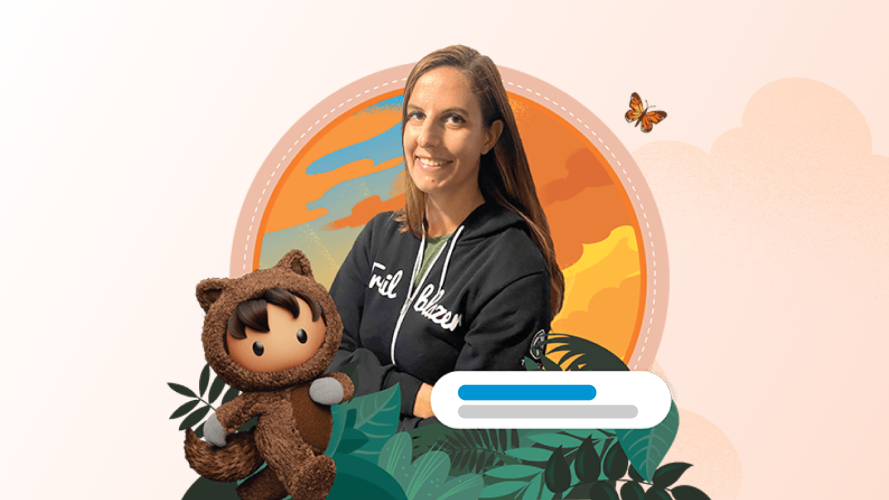5 Reasons Salesforce Is a Great Place To Work for Women
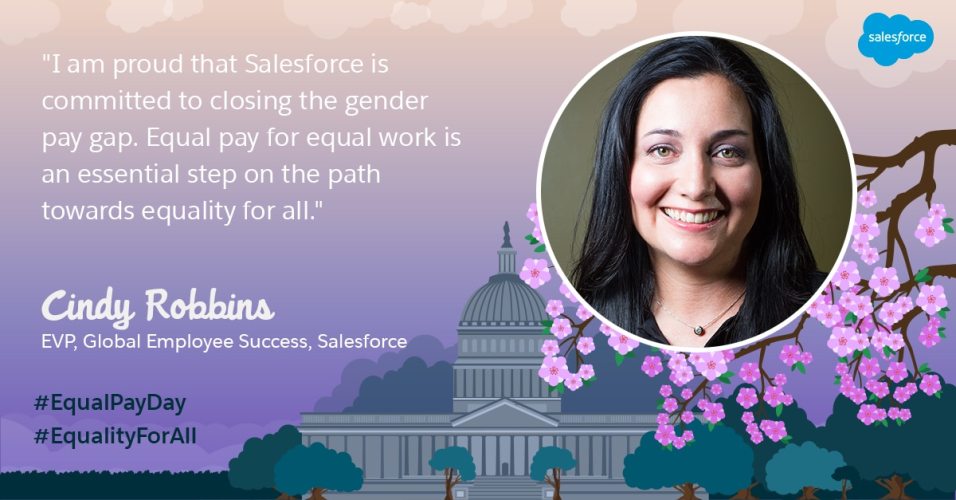


The technology industry has a history of not keeping pace with other industries in terms of gender equality. In the technology industry as a whole, women make up 16-47% of the roles in the top tech companies, while representing 56% of the US workforce as a whole. As two new Business Architects at
Jas Johl
The technology industry has a history of not keeping pace with other industries in terms of gender equality. In the technology industry as a whole, women make up 16-47% of the roles in the top tech companies, while representing 56% of the US workforce as a whole.
As two new Business Architects at Salesforce’s Innovation and Transformation Center, we decided to highlight the positive aspects of our experiences so far with the company culture — and pick five things we think make this an exceptional place to work.
1. Equal Pay
At Salesforce, equality is a core value and it is prioritized from the highest levels of management. Just last month on April 4—Equal Pay Day—we announced the results of our second global Equal Pay Assessment. As part of our overall commitment to advancing equality for all, we pledged to evaluate our workforce on an ongoing basis to ensure that employees performing similar work at the same level are paid consistently—and, close any pay gaps where they exist. Read more about our Equal Pay efforts in this blog post by our EVP of Global Employee Success Cindy Robbins.
2. Real Parental Leave & Childcare Options
Beginning in the U.S. and effective March 1, 2017, primary caregivers can now take 26 weeks paid time off (over 6.5 months) and secondary caregivers can take 12 weeks paid time off (over three months) to bond with a new baby or adopted child, at 80% of their earnings (up to a maximum of $5,000/per week). New parents also benefit from a gradual return-to-work policy, with flexible four-day weeks available for a month. Adoptive families are included in all benefits, on top of which Salesforce will reimburse you up to $10,000 per child for eligible expenses related to adoption. The benefits don’t stop there; Salesforce provides $250 in meal reimbursements so that you and your partner don’t have to cook right away.
For women who travel frequently as part of their job at Salesforce, there are additional perks including a Milk Stork membership to provide breast milk shipping services to business-traveling, breastfeeding moms. Milk Stork provides futuristic moms with everything they need to tote or send their milk home, including a pharmaceutical-grade shipping cooler, breast milk storage bags, and FedEx Priority Overnight shipping labels. Additionally, Salesforce provides 10 days of backup child care through a program that lines up temporary child care for those cases where a couple or single parent might need last-minute child-care help.

3. Our Philanthropic Focus
At Salesforce, philanthropy is a primary focus. Employees receive seven paid days off to volunteer their time at registered non-profits of their choice. A philanthropic focus is important to many, and yet, there is research to show that philanthropy might be more important to women. Year after year, research conducted for the Women’s Philanthropy Institute (WPI) has found that households headed by women, at all levels of income and wealth, give more money and are more likely to give then similarly situated men.
4. Our Voices Are Amplified
At Salesforce, management makes it a top priority to listen to employees. We personally have been encouraged to sit on diversity committees, speak to senior management about equality within the company, and share our thoughts through the internal social communication tool at Salesforce, called Chatter.
This transparent culture isn’t unique to Salesforce, but it is a great example of how technology can amplify voices and make sure everyone is heard. It’s not unusual for senior management to listen intently to employees at Salesforce. In fact, the equal pay initiative mentioned earlier was initially brought to Marc Benioff’s attention by a few female employees through the company’s communication channels.
5. Salesforce Empowers Our Ohana
The concept of Ohana is an integral part of Salesforce’s culture — it represents the notion of family. The #SalesforceOhana extends well beyond Salesforce employees; it is an ecosystem that thrives off Salesforce employees, partners, customers, and communities. This Ohana emboldens women to contribute in a multitude of capacities while also providing all participants with a platform to reach, influence and learn from hundreds of thousands of women. In fact, Salesforce was recently named one of the top companies for female technologists in the nation by the Anita Borg Institute.
One of our favorite examples of female empowerment within the Ohana is the Women in Tech User Group, a community that started with 20 or so women getting together for a happy hour one Dreamforce as a way to connect with other female attendees. Now, the group boasts over 30 chapters around the world and the community has direct access to Salesforce product and user experience teams, shares job openings for fellow girly geeks, and receives invites to exclusive Dreamforce Networking events and parties. The Salesforce ecosystem goes beyond a technology platform: it is a springboard for women’s networking and career advancement.
While we still have work to do, these five areas are promising things that point to progress. We’re grateful for the opportunity to be at Salesforce; let’s continue to push the conversation forward.
This post was a collaboration between Jas Johl and Brittany Golob
Brittany Golob has worked in the Salelsforce ecosystem for 5+ years. Now, as an Associate Business Architect at Salesforce, she works in the Innovation and Transformation Center, where she helps Salesforce customer realize the most value out of their CRM investment. In her spare time, Brittany enjoys coaching a Special Olympics Track & Field team, travelling the world and exploring new bars and restaurants in her area.
Jas Johl currently serves as a Business Architect at the leading technology company Salesforce, and as a member of the Board of Directors for the American think tank The Roosevelt Institute. Previously, she launched a crowdfunding platform for the world’s top public University, served as a technology advisor to senior executives, and ran a multi-million dollar, single-day fundraising campaign.
She has a background in public policy, previously running The Center for Institutional & Social Change at Columbia Law School. She studied Comparative Social Policy at Oxford University and Rhetoric at The University of California, Berkeley.
Jas volunteers at organizations that support survivors of domestic abuse and that promote a new generation of leaders from low-income backgrounds. She is committed to promoting equality throughout all her work.
